Ukulele strings come in a wide range of material, names, and hype.
The best bet to finding the right combination of ukulele string(s) for your ukulele out of all the different types of strings — is to try `em out. The easy part is that, luckily, ukulele strings are relatively inexpensive. And, the hard part, I found, is remembering which one you like. And, if you like a set on that uke — STOP YOUR SEARCH and enjoy it.
Information collected through various manufacturers and on-line resources.



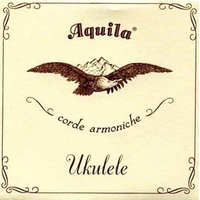
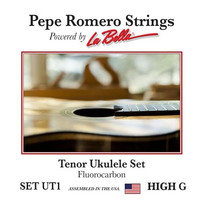
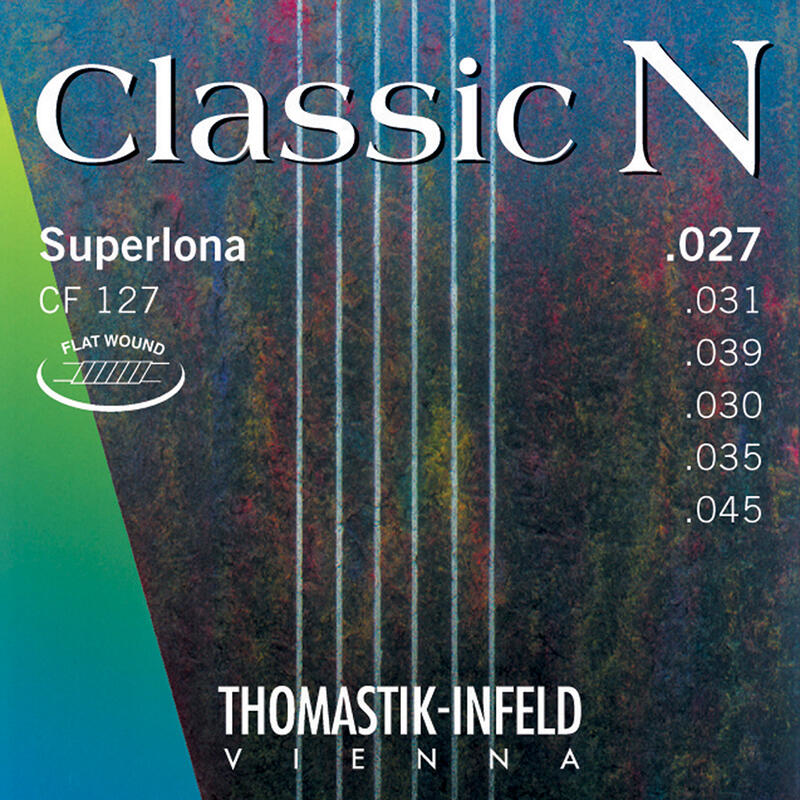
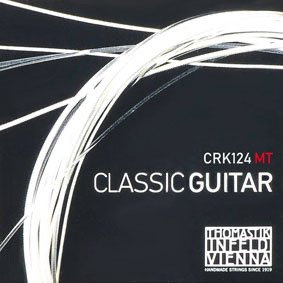
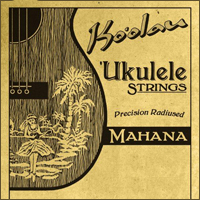
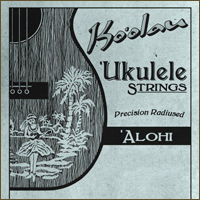
Ukulele strings are basically curated classical guitar strings packaged for ukulele. However some companies really put the work into testing and formulating what goes into their strings. Worth checking out their sites and see what they have to say about their strings.
- Strings by Mail has is really great resource and reference on Classical Guitar String Basics and one of LearningUkulele.com's' go to place for any string related information. I've (Curt) used to get my ukulele strings from them before we opened Funky Frets our family music store and can get my strings wholesale.
Basically premium fishing line. A brighter sound than nylon string. A very technical description of Fluorocarbon can be found on (wikiwand) :
- Typical String Gauges: .0205, .026, .0319, .0413.
Often referred to as Carbon
, these are the type of stings that I typically use. See Curt's Personal Ukulele Strings Recommendations page for more info.
"Cat Gut" is made from the intestines of the sheep or goats. For a long time, catgut was the most common material for the strings of harps, violins, and violas, as well as other stringed musical instruments, although most musical instruments produced today use strings with cores made of other materials, generally steel or synthetic.
(wikiwand) Up until the Second World War animal gut and silk were the materials from which guitar strings were manufactured. Albert Augustine , an instrument maker from New York, USA, was the first to produce guitar strings with nylon. According to Rose Augustine, his wife, he was unable to secure source materials due to the war restrictions and happened upon nylon line in an army surplus store in Greenwich Village. When initially approached by him the DuPont company, who manufactured the material, were unconvinced that guitarists would accept nylon's sonic characteristics. Augustine staged a blind test with company representatives from DuPont, they happened to choose nylon over gut as having the best "guitar sound". The DuPont company then supported Augustine's initiative. Augustine classical guitar strings were first commercially manufactured in 1948, in conjunction with Olinto Mari, President of E.& O. Mari/La Bella Strings at their factory in Long Island City New York. When Andrés Segovia , the great Spanish guitar virtuoso, discovered Augustine's strings he was an immediate convert.
There are two types of (wikiwand) Nylon strings — Extruded, and Ground ( rectified ). Extruded strings are made by pushing hot nylon through a small hole. Ground strings are first extruded and then ground down to size.
- Typical String Gauges: ( Tenor High G, C Tuning ): .0285, .0327, .041, .029
Fluorocarbon polymers have recently become an alternative to nylon treble strings. The sound is preferred by some Luthiers and players, especially for the smooth transition provided by the G string from treble to bass.
D'Addario Titanium Ukulele strings are crafted from a dense monofilament material that has an attractive, translucent purple hue and a polished, smooth feel similar to nylon. This unique material is particularly beneficial to Ukulele’s due to its slightly brighter tone and increased projection, resulting in more volume, clarity and dynamics. ( ref: D'Adarrio }
(from String by Mail) Essentially nylon strings with an additive agent that gives them a bluish titanium
look.
Aquila has a trade name Nylgut. A synthetic material created to have the feel and sound of traditional gut strings with out the traditional problem of gut strings. Aquila supples the majority of mass produced manufactures with strings.
- Typical String Gauges: .026, .032, .038, .028
The hardest part is rembering, of all the strings strings you try - which ones you liked ;-)



.jpg)